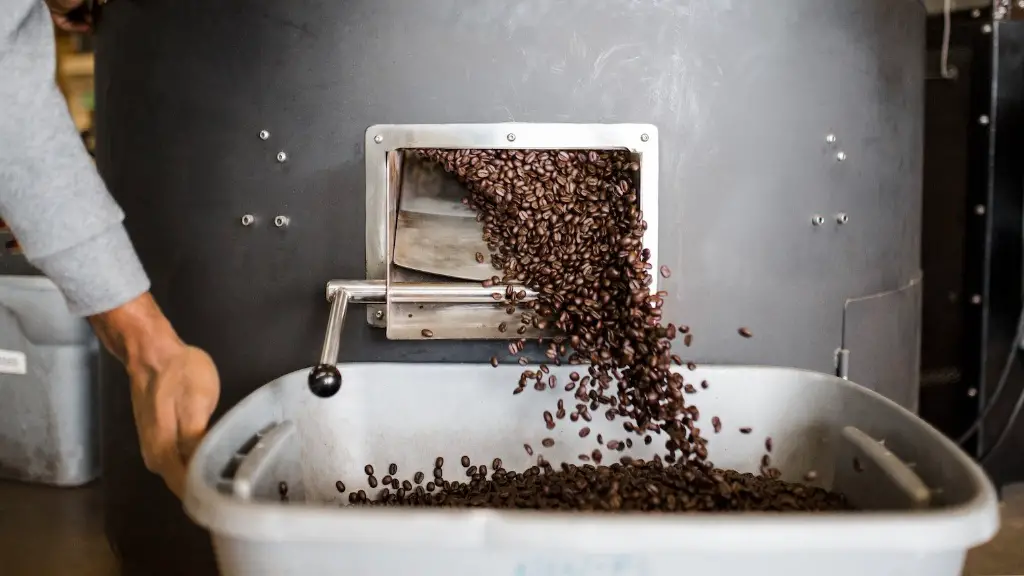Introduction
Drinking coffee when you have a fever is a debatable subject that continuously sparks debates among doctors,nutritionists and other health professionals.Whether it’s green tea or black coffee, it’s clear that certain elements such as caffeine can both help as well as harm an individual.Frequent participation of opinionated discussions cannot be seen as a reliable source of medical advice, especially when health is at stake, and an accurate answer can be only provided after careful analysis.
Is Caffeine a Remedy for Fever?
When you experience a fever, often it may be accompanied by fatigue, headaches, muscle aches and possible inflammation. As a result, some people may try to tackle their fatigueness and fatigue-related symptoms by drinking coffee in order to stay awake.Does this remedy work?
Caffeine, the active ingredient found in coffee, tea, and energy drinks, is a common stimulant that can temporarily increase wakefulness and alertness. While caffeine may be a natural remedy for other ailments, it is not necessarily beneficial when it comes to treating fever and its associated symptoms, as studies suggest that some sources of caffeine may actually increase body temperature.
Caffeine and Feverage
Although caffeine increases alertness,it also increases heart rate and can increase your core body temperature, raising your body temperature even further.The American Academy of Family Physicians recommends taking caffeine products with caution when you have a fever because of the potential of rising body temperature. You should also talk to your doctor before taking any medications that contain caffeine.
Effect of Caffeine on Dehydration
When having a fever, it’s essential your body has enough fluids. Caffeine is a diuretic, meaning that it makes you urinate more often, which can lead to dehydration, an additional health risk that needs to be addressed.Avoiding caffeine when your body is fighting off a fever may be the best option in order to prevent dehydration.
How to Drink Coffee When You Have a Fever
If you decide to drink coffee while having a fever, the best way to reduce any adverse side effects is to decrease your intake. Reducing your coffee intake and drinking more water can lessen your risk of dehydration, at least to some extent.It’s also important to note that coffee with a high amount of caffeine could trigger a more severe fever and some other side effects, such as rapid heartbeat, restlessness and insomnia, so be sure to drink smaller amounts of coffee to avoid any risks.
Conclusion and Precautionary Measures
In conclusion, the best way to determine if drinking coffee is beneficial when having a fever is to consult with your physician. The decision to drink coffee is ultimately up to you, but it’s important to be aware that caffeine can negatively impact your condition, especially when taken in larger doses and with dehydration present. So, you should also pay attention to signs of dehydration if you drink coffee and should discuss the risk of drinking coffee with your physician before making any decisions.
Caffeine and Poor Nutrition
When suffering from a fever, it’s important to stay hydrated and to get enough rest. Caffeine can be an obstacle for both these activities. Caffeine may act as a distraction to drink more water, potentially causing dehydration. In addition to that, it can also create poor sleeping habits and eat up important energy that can be used to support your immune system while fighting a fever.
Caffeine and Reduced Medication Efficiency
You should also be mindful of any medications you take in addition to the coffee itself. Some medicines can be reduced in efficiency and render their effect useless when caffeine is present. As a result, people often discover that the medications they take to reduce fever aren’t as effective. Talk to your doctor about the potential risks of drinking coffee as it relates to any medications you’re taking.
Can Caffeine Amplify Fever Symptoms?
The answer to this question has yet to be found out conclusively, but it’s an important factor to consider. In general, consuming large amounts of caffeine may cause certain symptoms to appear or be amplified. These can range from increased heart rate and fatigue to narrowing of the blood vessels, which can sometimes make a fever more painful. Depending on the amount of caffeine taken, the user may even experience shakes and shivers, sometimes believed to be brought on by dehydration.
Caffeine Intolerance
Caffeine intolerance is a common issue, especially among those with a fever. The body’s metabolism can slow down, resulting in an inability to process the same amount of caffeine as before. For this reason, drinking coffee when you have a fever may have a damaging impact, as caffeine strengthens in your system and the effects of dehydration increase in intensity. Be sure to talk to your doctor if caffeine intolerance is an issue.
Caffeine and Avoiding Overheating
In general, it’s best to avoid caffeinated beverages when you are fighting off a fever. Caffeine meshes with your body in a way that can lead to a heightened fever, or even symptoms of heat exhaustion, especially if you are dehydrated. Try to stick to drinking mild and simple beverages such as water or herbal teas to keep your body hydrated and cool.
Tips for Dealing with Fever
Aside from avoiding or reducing caffeine intake, there are some additional steps you can take in order to reduce the intensity of fever. These include:
- Getting plenty of rest and sleep;
- Eating nutritious foods rich in vitamins and minerals;
- Drinking plenty of fluids;
- Applying cold compresses to your forehead;
- Taking medications such as ibuprofen and acetaminophen.
These are simple and practical steps that can help you quickly manage a fever. If problems persist, then it’s best to contact your doctor for an accurate diagnosis and advice on how best to proceed.
Practicality and Common Sense
In the end, drinking coffee when you have a fever is a personal decision. Using common sense and staying mindful of the potential risks associated with drinking caffeinated beverages are the best ways to approach this dilemma. If a fever persists, it’s always best to seek professional medical care in order to ensure your safety and wellbeing.



